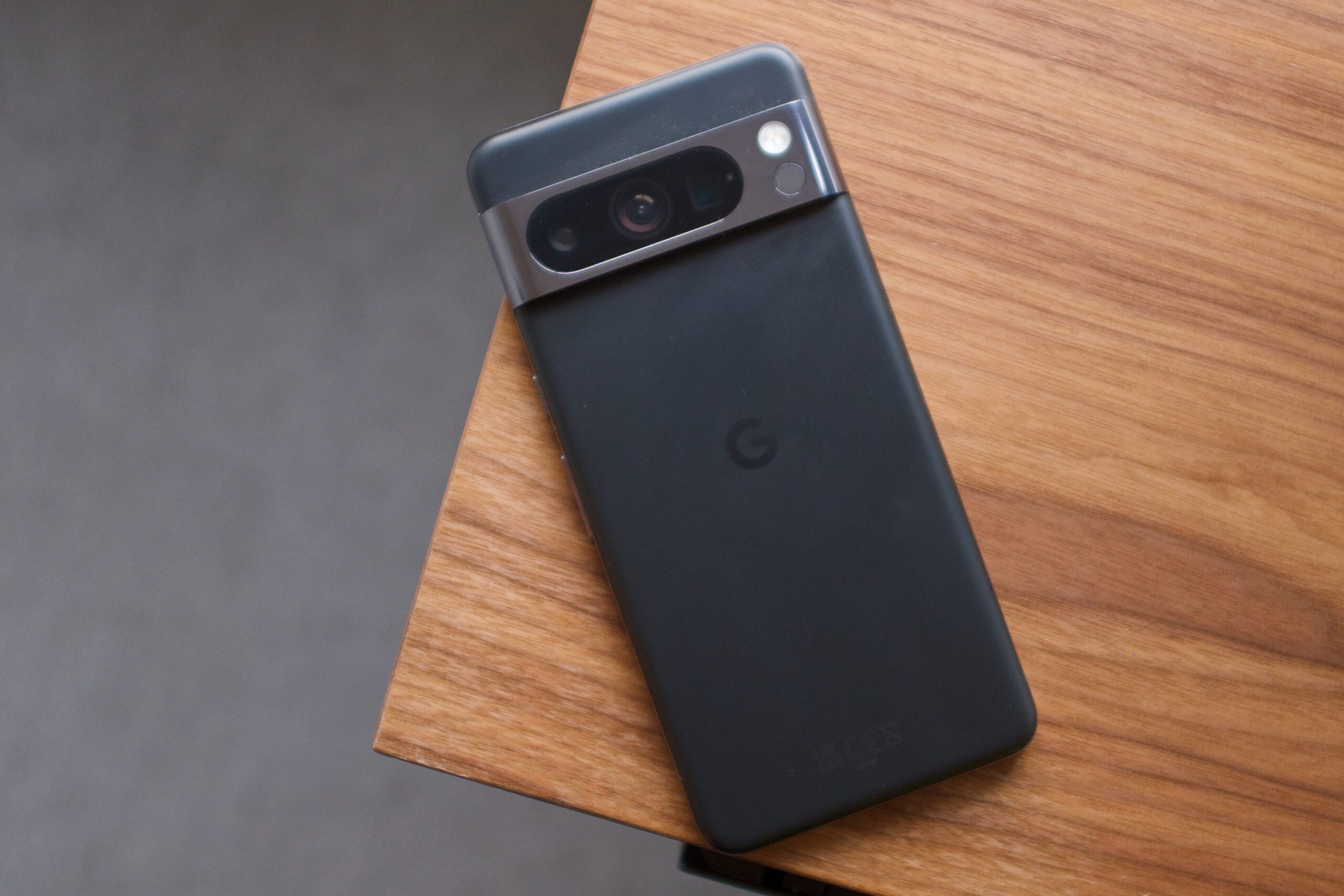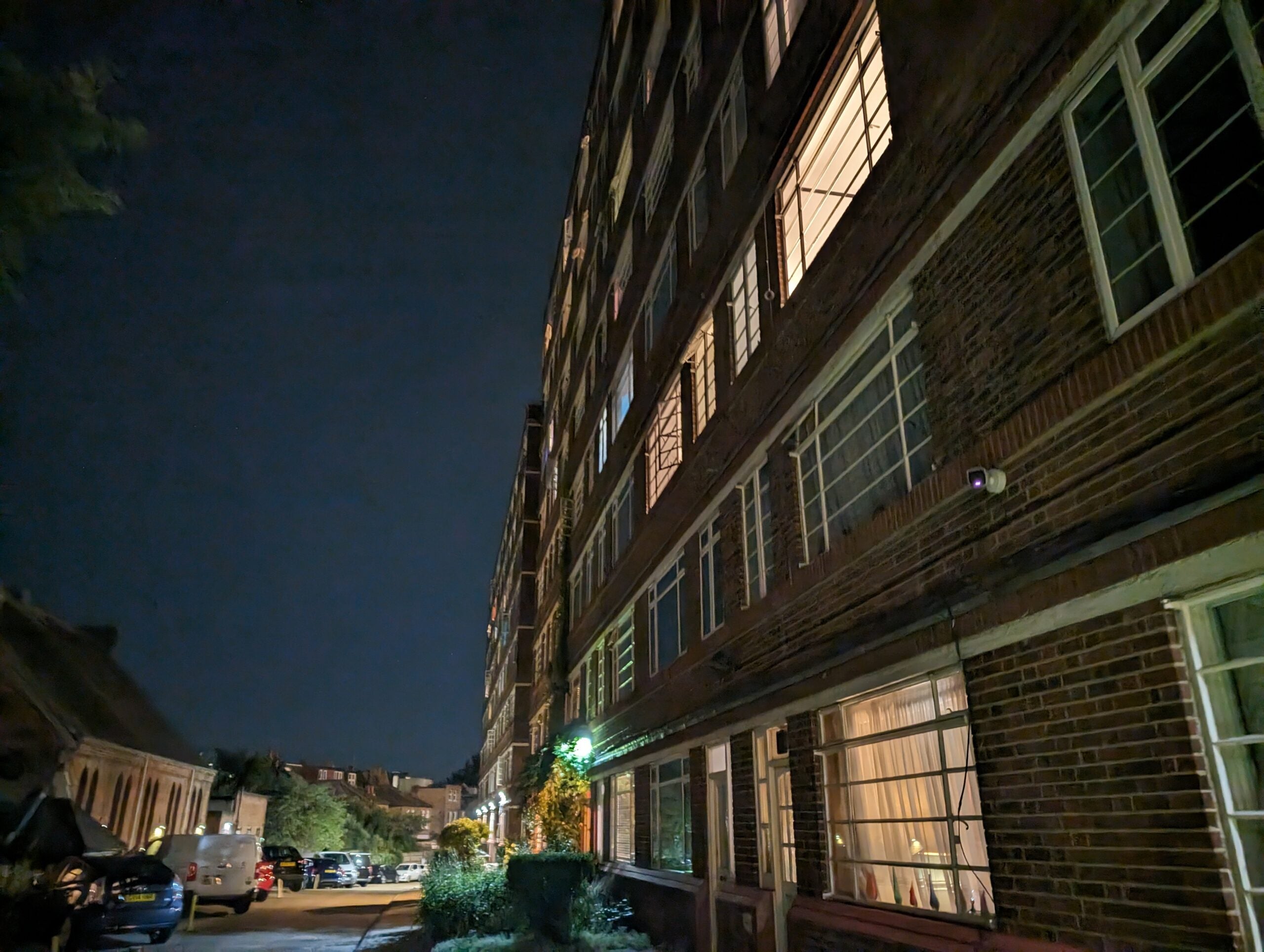Launched in October 2023, the Google Pixel 8 Pro is the newest high-end smartphone offering from Google, succeeding the Pixel 7 Pro.
Is it worth upgrading to the newest Pixel Pro or will the Pixel 7 Pro suffice? We’ve compared our reviews of each handset so you can decide which one is better for you.
Pricing
The Google Pixel 8 Pro currently starts at £999/ $999/€1099, whereas the Google Pixel 7 Pro currently starts for less at £849/$899 /€899.
Design
In terms of design there’s little to separate the Google Pixel 8 Pro from the Google Pixel 7 Pro. Both have a 6.7-inch screen, similar round-edged sides and a rear camera bar that has been negatively noted by various reviewers as “a shelf for dust to stick to.”
The Pixel 8 Pro has a satin finish that helps reduce the appearance of fingerprints and smudges, whereas the Pixel 7 Pro still sports a glossy finish which shows marks up easily.

The Pixel 8 Pro’s display was hailed by Editor Max Parker as “one of the best displays I have used on an Android phone, and it’s a notable upgrade over the Pixel 7 Pro.”
The Pixel 8 Pro is able to reach upwards of 2000 nits of brightness and benefits from HDR playback, while the Pixel 7 Pro is restricted to 1500 nits. Both have a refresh rate of 120Hz, although the Pixel 8 Pro can dynamically drop down to 1Hz, while the Pixel 7 Pro is only able to drop down to 10Hz.
Both the Pixel 8 Pro and Pixel 7 Pro have an IP68 rating for protection from dust and water.
Camera
Both the Pixel Pro offerings have a trio of cameras at the rear with a 50MP main lens and 48MP telephoto lens. The Pixel 8 Pro has a 48MP ultrawide lens, whereas the Pixel 7 Pro has a 12MP ultrawide lens.
Both camera set-ups are capable and take impressive shots, with the Pixel 7 Pro’s shots “full of detail, dynamic range and rich, contrast-heavy colour” with good exposure levels, which is helped by Google’s Real Tone feature.
The Pixel 8 Pro goes one step further than the Pixel 8 Pro however, as Max reported that “shots aren’t quite as cool as those from the 7 Pro, with warmer hints throughout.” The biggest difference between the two comes from the new Camera app layout and inclusion of Google AI.


Not only are there extra camera controls on the Pixel 8 Pro but there’s also the AI-assisted tools such as Best Take and Audio Magic Editor to perfect group images and videos.
Capturing video on the Pixel 8 Pro also boasts an improvement over the Pixel 7 Pro. While the Pixel 7 Pro’s videos were “perfectly serviceable, with a good range of stabilisation options” we found it lacked the same colour depth as images, which has been amended with the Pixel 8 Pro.


Performance
The Pixel 8 Pro runs on the Google Tensor G3 chip with 12GB RAM and a maximum internal storage capacity of 512GB (although some locations offer up to 1TB). The Pixel 7 Pro in comparison runs on the Tensor G2 chip, with 12GB RAM and a maximum of 256GB of storage.
Both the Tensor G3 and G2 chips focus on AI skills, with the G2 being responsible for the Pixel’s Real Tone and Face Unblur camera features and for translation skills. The G3 is responsible for more of the clever AI camera features, such as Best Take.
The Pixel 8 Pro promises seven years of Google support, including security updates and system updates too. The Pixel 7 Pro instead promises a minimum of five years of security updates and four years of Android updates.
Battery
Both Google Pixel Pro handsets have hefty battery capacities, which is now the norm in flagship Android smartphones. The Pixel 8 Pro has a 5050 mAh battery, and the Pixel 7 Pro is slightly less at 5000mAh.
Our reviewer found that “five to six hours of screen time” resulted in around “20-25% battery left at the end of the day” with the Pixel 8 Pro. The Pixel 7 Pro resulted in about 10-15% battery left at the end of the day.
Verdict
There isn’t much between the Google Pixel 8 Pro and Google Pixel 7 Pro. The designs are identical, camera setup mostly the same, and the performance jump may not be as big as some had hoped for.
The biggest upgrade for the Google Pixel 8 Pro is the bounty of new AI features, including the likes of Best Take and Audio Magic Editor. The improved ultrawide lens is also welcome, as is the improved battery life.
If you already own the Google Pixel 7 Pro, we’d argue that there aren’t enough improvements to justify an upgrade. If you’re choosing between the two phones, price will likely be the deciding factor, unless you really want to take advantage of the new AI features.
